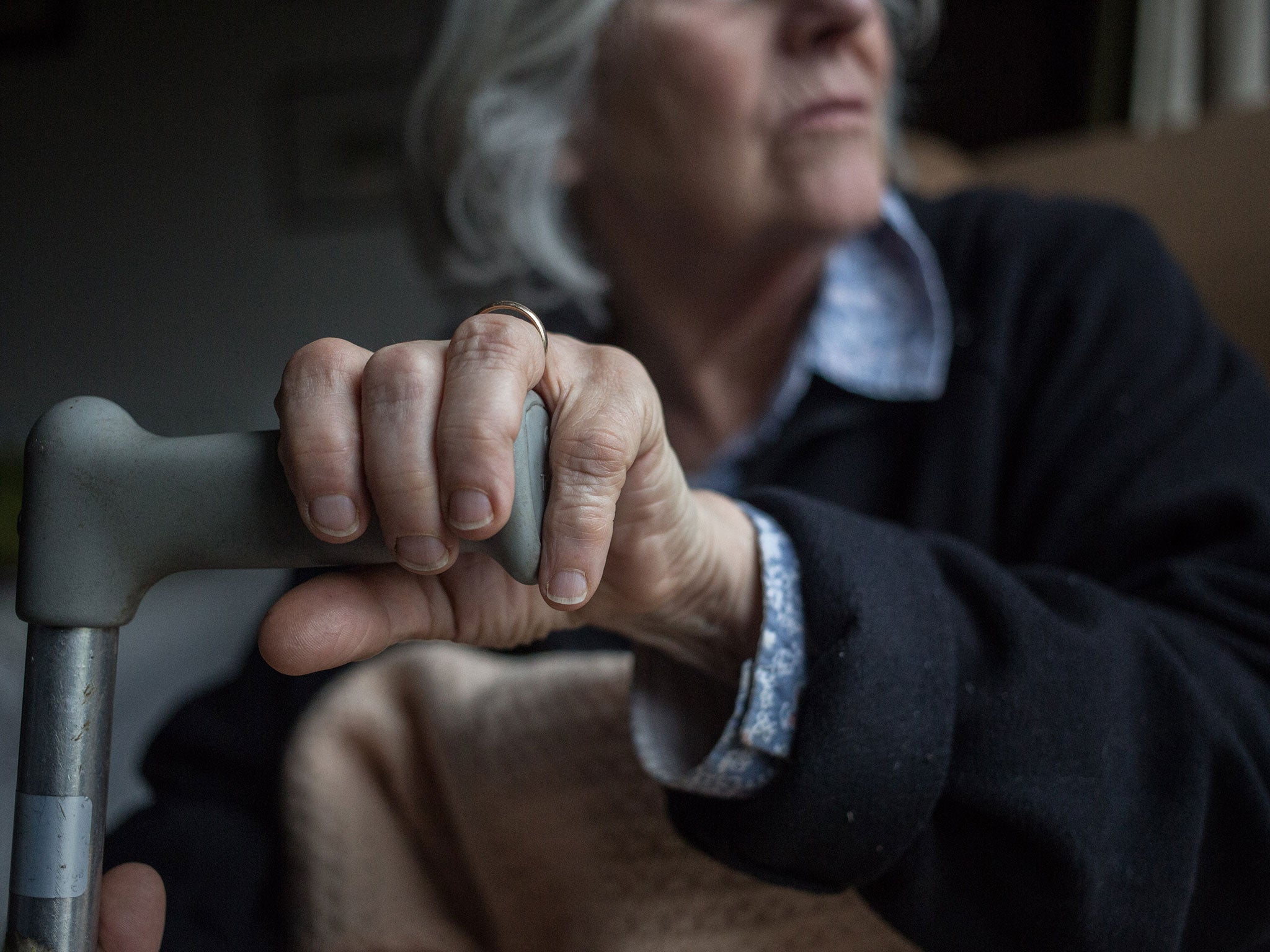Thousands of older people at risk of malnutrition and dehydration at inadequate care homes
Data from care inspector shows hundreds of care homes not meeting legal standards specifying food is 'suitable to sustain life and good health'

Thousands of older people risk being left without enough food or drink, or choking at overstretched and unsafe care homes, The Independent has found.
In the past three years inspectors from the Care Quality Commission (CQC) have found hundreds of older people’s care homes are failing on legally required standards for nutrition and hydration.
CQC inspectors have identified serious cases where residents have gone for almost a week with the equivalent of two cups of water and “minimal food”. While others have been put at risk of choking after being served food they can’t chew.
Records released by the CQC under the Freedom of Information Act show that in the past three years 434 care homes have been found falling short of the standards.
In 2017 alone 136 care homes were given regulatory sanctions requiring them to make urgent changes to ensure resident’s safety.
The most serious cases saw care home operators stripped of their registration, meaning the service would need to close or find someone else to run it.
To meet the CQC’s standards, the regulations specify it must cater to people’s religious and dietary needs and provide “suitable and nutritious food and hydration which is adequate to sustain life and good health”.
Malnutrition in elderly care is particularly problematic because weight loss increases the risk of falling and pressure sores. Equally dehydration leaves older people prone to urinary tract infections which can be hard to spot and may prove fatal.
One such home banned from operating after a failed inspection was Cedars Residential, in Halstead, Essex, where 57 people were housed. Among the problems found according to the inspection report, was that a vulnerable person had only “received a total of 850mls of fluid in five days and only minimal foods”.
St Marks Care Centre, in Sale, Cheshire was also found to be inadequate after whistle-blower’s concerns prompted an inspection in October. It is now in a special measures regime and has six months to make improvements before re-inspection and cannot currently take new patients.
Worryingly at St Marks, which has capacity for 62 residents many with complex or challenging behaviour linked to dementia, the CQC found patients were at “significant risk of harm”.
A number whose care plans said they required mashed foods had received dinners which could be choking hazards such fish and chips or steak.
The CQC also raised concerns about patients who had lost weight and should have been closely monitored to ensure they regained it, but the inspectors found this had not been followed, noting one person “had lost 7kg in total, but there was no evidence of a referral to a dietician”.
A survey last month suggested “abuse” of older people, such as not giving enough time to complete meals, occurs in 99 per cent of care homes, driven largely by shortages of staff.
“It’s really very sad, how many people are not getting proper food and they’re choking,” Lesley Carter, a former nurse and health influencing manager at older people’s charity Age UK told The Independent.
At the other extreme Ms Carter has encountered homes which still take solid meals and blend them into “slop” in a food processor for those who can’t manage solids.
“It’s quite frightening when we start to unpick the issues. Food and hydration, that’s just fundamental”.
“In residential care, there are often a lot of people with dementia and rarely are there skilled staff who can correctly weigh and monitor people,” she added.
A Malnutrition Taskforce which Age UK sits on with other charities and social care meal providers, estimates that 37 per cent of people admitted to care homes because they’re malnourished and funding pressures make that worse.
“People aren’t paying enough, so care homes cut things. The quality of meals goes down because food is always first to be cut.

“They cut the staff, so there’s a lot of time with skeleton staff around where you can’t feed or drink or toilet people.
“That is a direct result of the very small amount of money being paid by county councils.”
In total 55 of the 449 older people’s care homes given the CQC’s worst rating, inadequate, in 2017 had failings in managing residents food and drink and face closure if they don’t make significant improvements.
A further 2,358 homes were found to require improvement, and just 118 of the 6,240 homes inspected were given the best rating “outstanding” – the rest were rated good.
Andrea Sutcliffe, the CQC’s chief inspector of adult social care, said “most care homes get it right” and offer appetising meals and support people to eat where needed.
“But too often we see people being failed in this critical aspect of care and support. This failure poses a serious, potentially fatal, threat to people’s health and well-being. That is why our inspectors will always ask about it, share our findings in reports and take action when we see poor practice."
Marantomark, which operates St Marks Care Centre, declined to comment.
Join our commenting forum
Join thought-provoking conversations, follow other Independent readers and see their replies
Comments
Bookmark popover
Removed from bookmarks